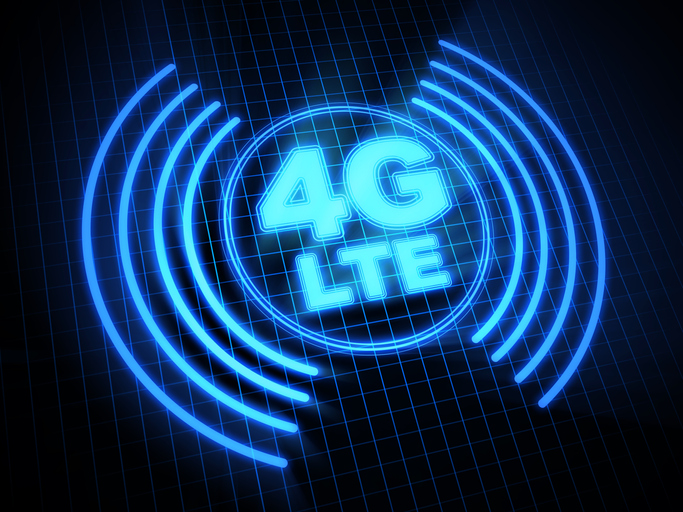
LTE has become a popular cellular technology because of the increasing usage of 4G smartphones and other smart devices. Thanks to 4G LTE, we can download large files and stream high-quality live video in just a few seconds. As the fastest wireless network for smartphones and mobile devices, the benefits of LTE are particularly useful for businesses. However, it is essential to be aware of the limitations of LTE as well.
What is LTE?
LTE stands for long-term evolution and is a high-performance air interface and data network for cellular telecommunications. 4G LTE refers to the fourth generation of wireless networking technology.
The first generation, 1G, was developed in the 1980s and enabled us to make and receive calls on our mobile phones. In the 1990s, 2G introduced SMS text messaging and international roaming.
In 2001, 3G gave us the ability to browse the web on our cellphones. Then, 4G LTE was built to reduce latency (the time it takes wireless data to travel in the network) and increase speeds for mobile communications and broadband data usage.
Read: Cellular vs. Satellite Communication: Which Is Best For Your Business?
Benefits of LTE
As the fastest and most widely available wireless telecommunications network, LTE provides significant performance improvements over earlier generations. Here are some of the benefits of LTE for businesses.
Quicker Download Speeds
4G’s download speeds can reach as high as 100 Mbps, enabling faster access to content and online applications. A study found that in organizations using LTE in the United States, 67 percent have seen productivity increases while 47 percent were able to cut costs.
Faster Web Browsing
Faster download and upload speeds enable us to transfer large amounts of data between users. As mentioned earlier, 4G LTE also reduces latency so that data travels faster between one point in a network to another. That means less time to load webpages, back up data on the cloud and remotely access files.
High-Quality Video and Live Streaming
From streaming services to video conferencing software, we have become increasingly dependent on using video to stay connected online. Many businesses with remote locations use real-time 4G video feeds to monitor these sites, often overseeing multiple locations from just one office.
Longer Battery Life
Reduced latency means that data transfers go much faster and use less power. By using LTE, users can extend the life of their smartphone batteries. 4G LTE uses slightly more power than previous generations, but it moves data so much faster that it can complete a task more quickly.
Decreased Network Loads
Because LTE transfers large amounts of data between people, it seems that network usage would increase. However, the faster data speed and reduced latency mean that the data moves very quickly, reducing any load on the network.
This results in fewer crashes in service, which can be essential for businesses that must stay connected to the cloud, like companies with multiple remote locations.
Limitations of LTE
Despite these significant benefits, LTE does have some downsides. Here are some factors to consider when implementing LTE.
Not Available Everywhere
As a still-emerging technology, 4G LTE networks are not the standard for wireless telecommunications companies. More cellular service providers still need to expand their network infrastructure to offer better signals, especially while in transit on buses and trains.
Cannot Be Used With Older Cell Phones
Unfortunately, if your phone is not already compatible with 4G LTE, it’s impossible to connect that device to an LTE network. However, LTE itself is very flexible and compatible with most existing mobile networks.
As 3G is slowly being phased out as a telecommunications option, many businesses upgrade their internet to 4G LTE for a faster, more reliable connection.
4G LTE Devices Are Costly
Because your older existing devices might not work with 4G LTE, you may decide to replace all your devices with smartphones that have built-in LTE. These newer smart devices are specifically designed to support a stable 4G LTE connection and provide the fastest internet connectivity.
However, the cost of adding brand-new smartphones and other devices to a network can outweigh the benefits of LTE.
Stay Connected Anywhere With FUSION
Emergency services and enterprise businesses depend on a reliable wireless internet connection to access remote files and stay in touch with employees and clients worldwide. But what happens if a cellular connection isn’t available? IP Access International can help.
FUSION joins LTE’s higher speeds and lower latency with the reliability of VSAT to find the best connection. FUSION’s multiple fallback options and one-touch satellite reconfigurations allow you to maintain the highest quality and speed for your data, video and voice applications no matter where you are.
To learn more, contact us today.